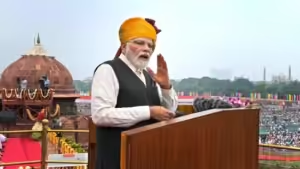
broadcasting bill 2024
The Broadcasting Bill 2024 in India represents a significant development in the country’s media landscape. It aims to modernize the regulatory framework governing broadcasting services, addressing technological advancements, and evolving media consumption patterns. The bill has garnered substantial attention due to its potential impact on freedom of expression, media ownership, and the regulation of content across various platforms.
Background and Objectives
The Broadcasting Bill 2024 is introduced with the primary objective of overhauling the outdated regulatory mechanisms that have struggled to keep pace with the rapid changes in the broadcasting sector. The bill aims to create a more transparent, accountable, and fair system that balances the interests of broadcasters, consumers, and the government. It seeks to address issues such as media monopolies, cross-media ownership, and the growing influence of digital platforms on traditional broadcasting.
Key Provisions of the Bill
1. **Content Regulation**: One of the most discussed aspects of the Broadcasting Bill 2024 is the enhanced regulatory oversight on content. The bill proposes the establishment of a central content regulation authority that will monitor and regulate broadcast content, ensuring that it adheres to certain standards of decency, accuracy, and public interest. This move is seen as an effort to curb the spread of misinformation and hate speech, but it has also raised concerns about potential censorship and the stifling of free speech.
2. **Media Ownership**: The bill introduces stricter regulations on media ownership to prevent monopolies and ensure diversity of voices in the media landscape. It proposes caps on the extent of cross-media ownership, preventing a single entity from having significant control over multiple media platforms, including television, radio, and digital media. This provision is intended to promote plurality and prevent the concentration of media power in the hands of a few large corporations.
3. **Digital Media and OTT Platforms**: Recognizing the growing influence of digital media and Over-The-Top (OTT) platforms, the Broadcasting Bill 2024 extends its regulatory scope to these platforms. The bill mandates that digital streaming services adhere to similar content standards as traditional broadcasters. This includes the requirement for these platforms to obtain licenses, adhere to content codes, and provide transparency in their operations.
4. **Public Broadcasting**: The bill also emphasizes the importance of public broadcasting services. It seeks to strengthen the role of public broadcasters like Doordarshan and All India Radio by providing them with greater autonomy and resources. The aim is to ensure that these entities can continue to serve as impartial and reliable sources of information, especially in rural and underserved areas.
5. **Consumer Protection**: Another significant provision in the bill is the focus on consumer rights. The Broadcasting Bill 2024 introduces measures to protect consumers from misleading advertising, unfair pricing practices, and poor-quality services. It also provides for the creation of a grievance redressal mechanism, allowing consumers to lodge complaints against broadcasters and seek redress for any grievances.
Controversies and Criticisms
While the Broadcasting Bill 2024 is seen as a necessary step towards modernizing India’s broadcasting regulations, it has not been without controversy. Critics argue that the bill could lead to excessive government control over the media, stifling press freedom and leading to censorship. The establishment of a central content regulation authority, in particular, has raised concerns about potential abuse of power, with some fearing that it could be used to suppress dissent and control the narrative.
Additionally, media companies have expressed concerns about the impact of the new ownership regulations on their business operations. They argue that the restrictions on cross-media ownership could stifle innovation and growth, making it difficult for them to compete in a rapidly changing media environment.
The Broadcasting Bill 2024 marks a significant shift in India’s approach to regulating its media landscape. While it aims to address the challenges posed by technological advancements and changing media consumption patterns, it also raises important questions about the balance between regulation and freedom of expression. As the bill moves through the legislative process, it is likely to be the subject of intense debate and scrutiny, with stakeholders from various sectors weighing in on its potential impact. Ultimately, the success of the bill will depend on its ability to strike a balance between ensuring responsible broadcasting and preserving the fundamental rights of freedom of speech and expression.





